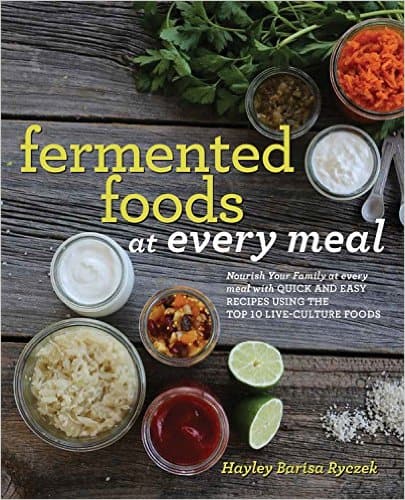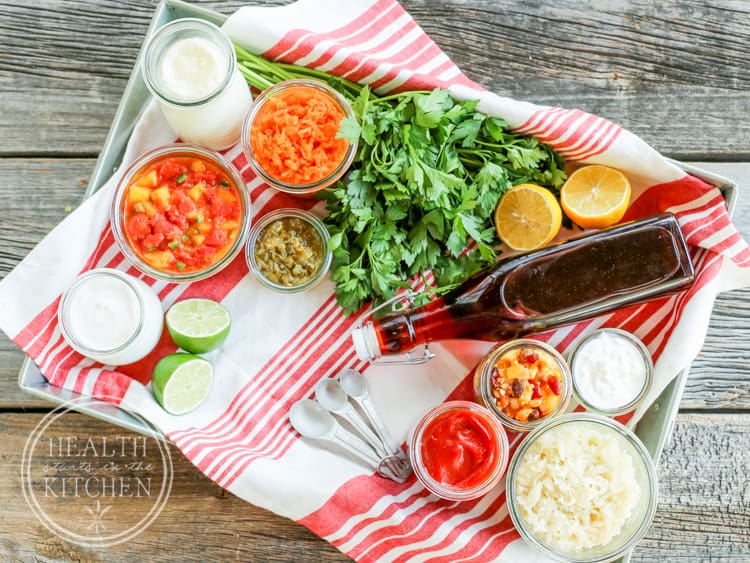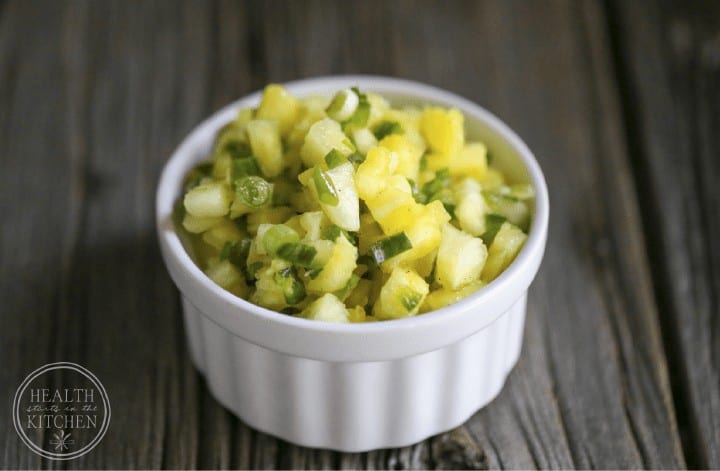5 Reasons you should add Fermented Foods to your Grain-Free Diet
First of all, kudos to you for eliminating grains from you diet! As the author of the cookbook, Without Grain: 100 Delicious Recipes for Eating a Grain-Free, Gluten-Free, Wheat-Free Diet, it’s obvious that I’m an advocate for eating a grain-free diet for health, but did you know that adding Fermented Foods to your grain-free way of eating is extremely beneficial?
Before modern refrigeration, people sought other methods to preserve food and mitigate spoilage. Using naturally occurring bacteria and yeast to ferment native foodstuffs didn’t only protect food from spoilage, but it also added probiotic foods to their diet and boosted their nutritional intake. Not only that, but many fermented foods contain enzymes humans need to more effectively derive nutrition from their food. Whether they knew it or not, ancient peoples benefited in many ways from fermented foods. Adding fermented foods to your grain-free diet is an inexpensive and delicious way to speed your body’s healing process and eliminate your symptoms.
- Fermented foods improve digestion.
Fermenting our foods before we eat them is akin to partially digesting them first. According to Joanne Slavin, PhD, RD, a professor in the Department of Food Science and Nutrition at the University of Minnesota, “Sometimes people who cannot tolerate milk can eat yogurt. That’s because the lactose [which is usually the part people can’t tolerate] in milk is broken down as the milk is fermented and turns into yogurt.” Getting the good bacteria working makes the job easier on our guts. - Fermented foods restore the proper balance of bacteria in the gut.
Do you suffer from lactose intolerance? Gluten intolerance? Constipation? Irritable bowel syndrome? Yeast infections? Allergies? Asthma? All of these conditions have been linked to a lack of good bacteria in the gut. - Fermented foods are rich in enzymes.
Your body needs enzymes to adequately digest, absorb, and utilize the nutrients in your food. As we age, our body’s supply of enzymes goes down, making it increasingly important to add them via our food. - Fermenting food increases its vitamin content.
Fermented dairy products show an increased level of folic acid, which is critical to producing healthy babies, as well as pyridoxine, B vitamins, riboflavin, and biotin, depending on the strains of bacteria present. - Fermented food helps with nutrient absorption.
You can ingest huge amounts of nutrients, but unless your body actually absorbs them, they’re useless to you. When you improve digestion, you improve absorption.
How to Incorporate Fermented Foods into Your Diet
Start by switching from pasteurized, vinegar-brined condiments to the live, fermented versions of pickles, sauerkraut, salsa, ketchup, sour cream, kimchi, and yogurt. You can also drink 2 to 3 ounces (60 to 90 ml) of fermented beverages every couple of days. Kombucha, kvass, and unpasteurized kefir are readily available at many health food stores.
To learn more tips & tricks to adding fermented foods to your diet, check out my (2nd) cookbook Fermented Foods to Every Meal
Each chapter in Fermented Foods to Every Meal delves into one of these ten fermented foods and teaches readers how to make it at home. The book then guides readers through simple ways to use each live-culture powerhouse food, starting with simple recipes, such as Sweet Crème Grilled Peaches, and moving into more inventive eats that cross over with ferments from other chapters.
In Fermented Foods to Every Meal, emphasis is put on retaining the probiotic and enzymatic qualities of these foods by not overheating them. After all, anyone can blend kefir into muffin batter and call it a kefir recipe, but the oven kills the properties of kefir that help you digest the meal you’re eating, which was the whole point of consuming fermented food in the first place!
This book’s emphasis on informed, healthful eating, plus the range of recipes it offers, set Fermented Foods to Every Meal apart from any other book in its genre. Revolutionize your daily diet with these delicious probiotic powerhouse recipes!










Mote fermented foods to know